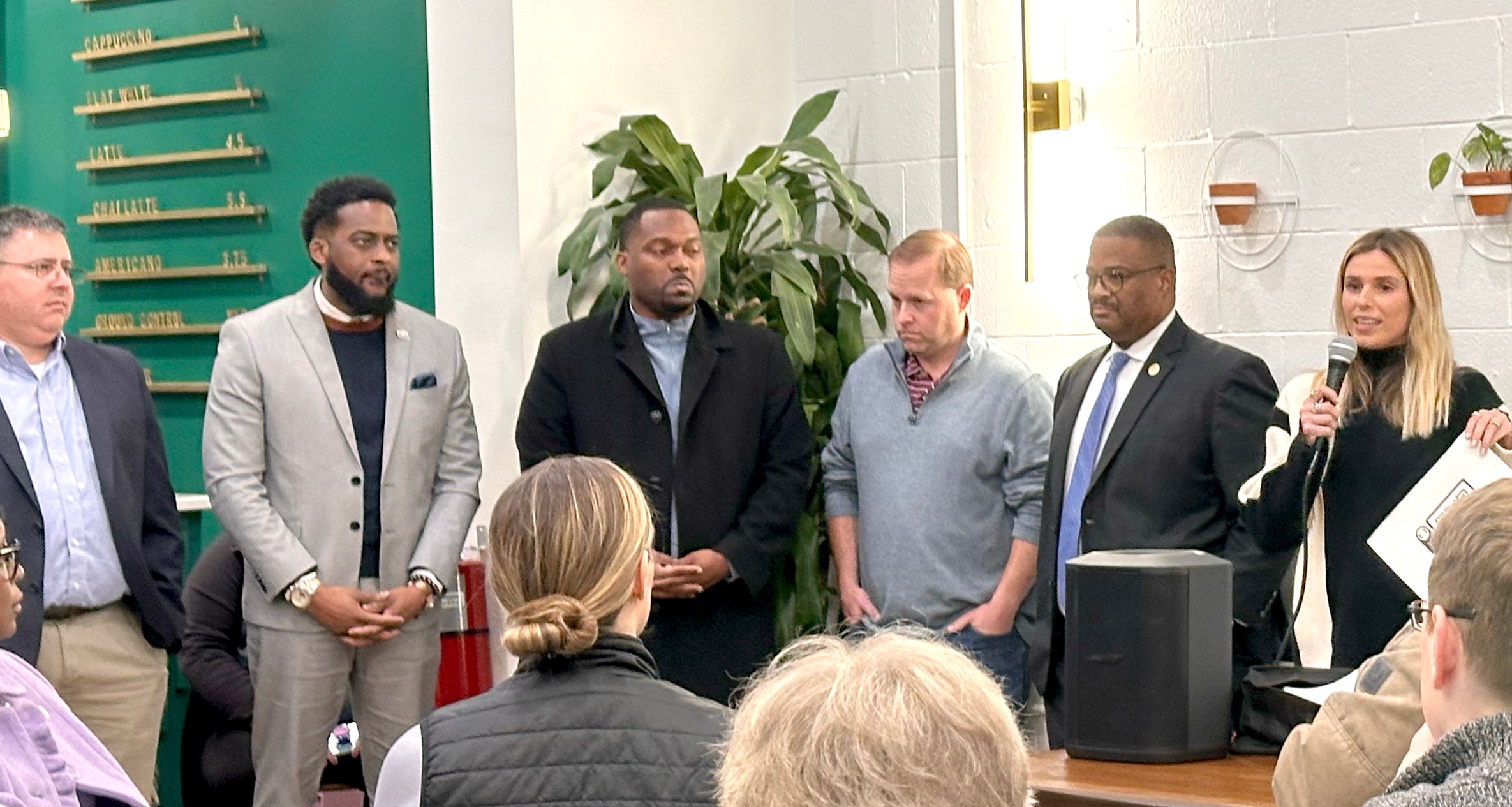The typically quiet community living around Richmond Academy packed a Walton Way coffee shop Wednesday seeking answers about the sale of a historic elementary school for a government-sponsored mixed-income housing development.
The city and Augusta Housing Authority received a $450,000 Choice Neighborhood grant in 2021 to study the options for two adjacent areas, Harrisburg and Laney-Walker.
But the Richmond Academy area now eyed for the relocation of public housing residents, which was not in the study area, knew little or nothing about the plan until Richmond County Board of Education voted in secret to sell the property Dec. 12.
Mayor Garnett Johnson, Commissioners Jordan Johnson and Sean Frantom, Housing and Community Development Director Hawthorne Welcher and Housing Authority Deputy Director Doug Freeman, as well as Community Foundation of the CSRA Executive Director Shell Berry turned out to answer residents’ questions. No one from the school system attended.
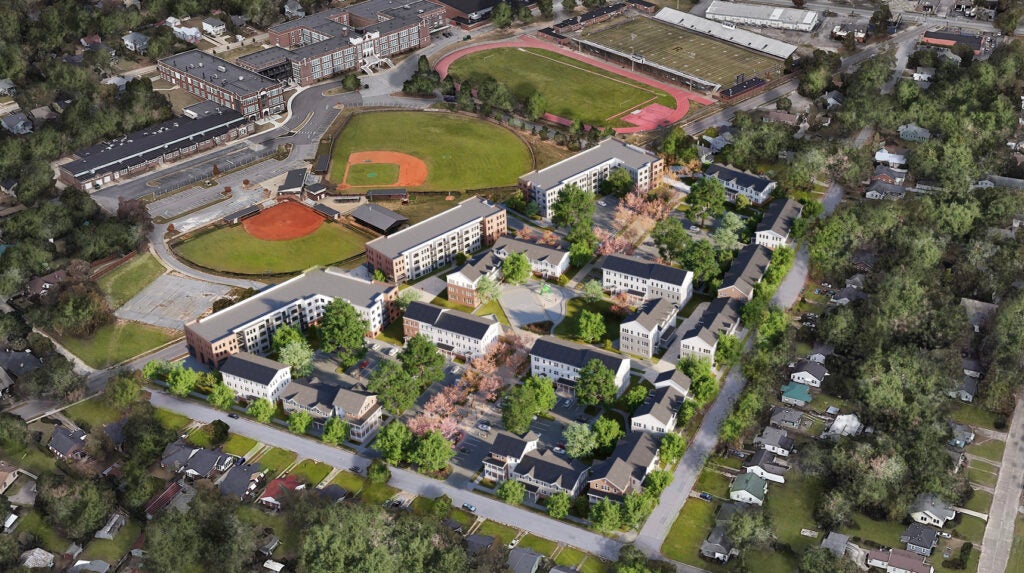
The city and housing authority are now applying for a $40-plus-million Choice Neighborhood grant to implement the housing plan, but city officials claimed Wednesday the final destination for Allen Homes residents has not been finalized.
MORE: School board votes to sell historic school
“To the defense of Choice Neighborhoods, it is a great program that I believe strongly could benefit Augusta,” Mayor Johnson said. “But no final decision has been made on the development of Lamar Elementary.”
Frantom, who is term-limited, said he’ll be out of office by the time the commission would vote on the development, possibly in 2025, but said he’d been unaware of plans to build outside the planning grant area.
“I found out about this purchase on the news,” he said. “My thoughts are it is not the best location for this.”
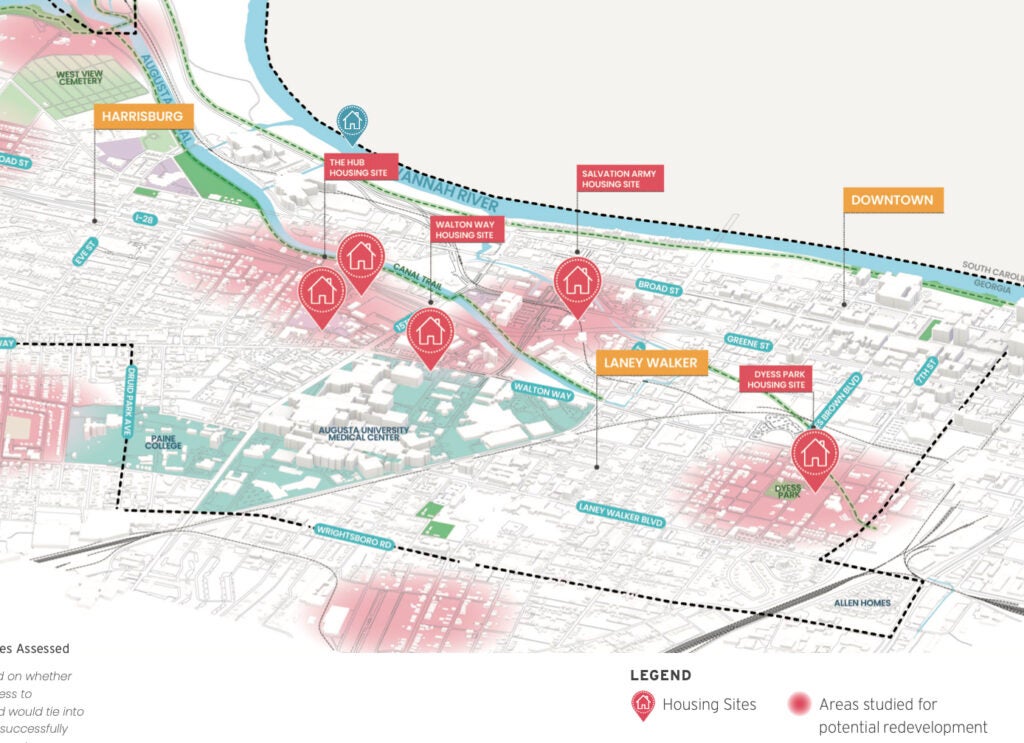
MORE: City buys Weed School for $1.3 million
Welcher said the Choice application had to include demolition of an inadequate public housing development, Allen Homes, and replacement of the units. He called the Lamar site a “prospectus” whose use is not mandated by the grant application.
In any event, the site is “looking to be a nucleus and part of the community” and not “looking to drain the community,” he said.
The school board voted 8-1 Dec. 12 to sell the property after more than an hour behind closed doors, during which everyone at the meeting left. Neighborhood activist David Dunagan spoke out against the plan at the meeting, but none knew the vote would happen later that day.
The board voted to sell the property for $1.365 million to a shell corporation called 970 Baker Avenue LLC. The LLC, created by real estate lawyer Jim Trotter, has a period of due diligence before it can close on the property.
One homeowner living within sight of the school said Wednesday surveyors had been there for days.
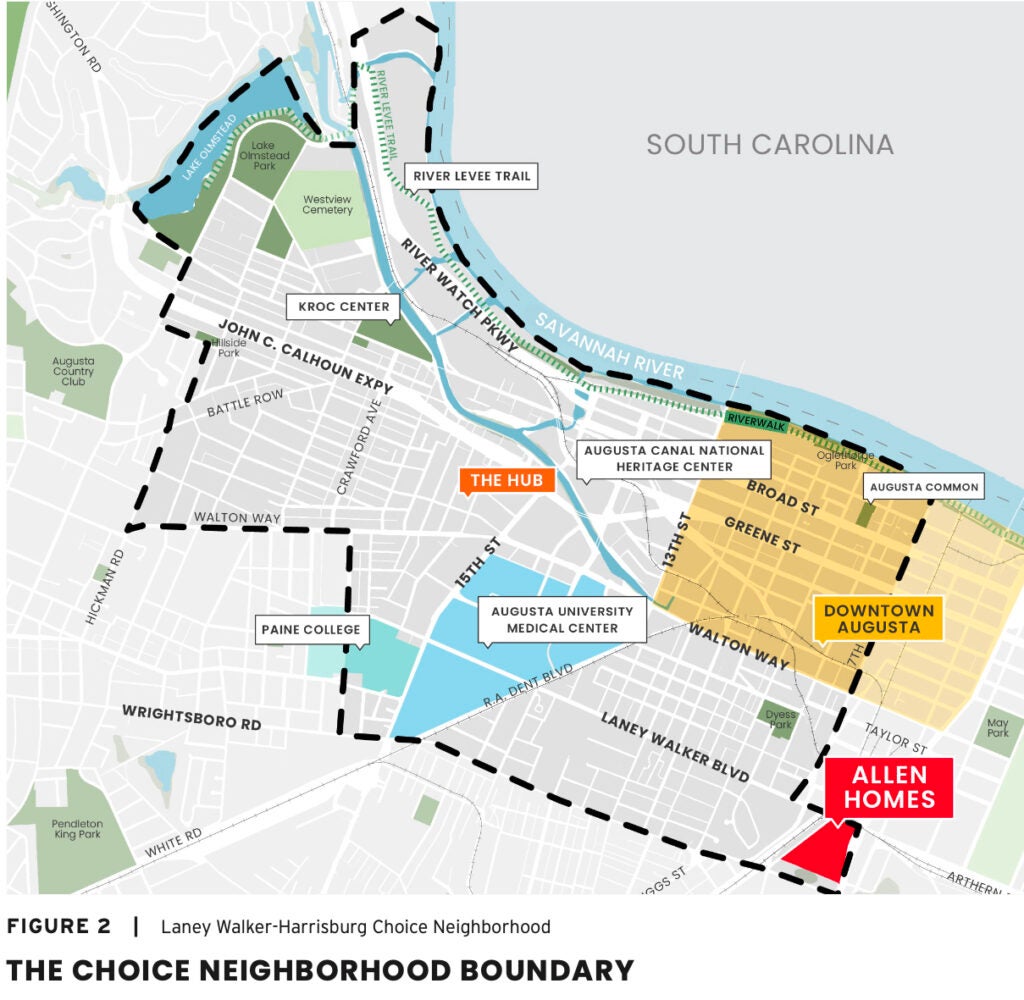
Homeowner Nancy Blanchard, who is active with the housing effort Turn Back the Block and has a grandson at Richmond, questioned the plan to house 1,000 people in the block across from the high school, which is currently a greenspace the neighborhood enjoys.
“I’m not against the program – I’m against the location of the program,” she said. “There’s no grocery store. It’s not that I mind having low-income people in my neighborhood; it’s that I don’t think this is the right place.”
Others said the high school needs the space and shouldn’t be further landlocked by a large housing development.
A neighbor said parking at Richmond is so limited, cars have to park on the new track.
“They’re landlocked. They have no tennis courts. They have nowhere to grow. Why would you take that option away from ARC that has worked so hard to excel?” she said.
Other long-term neighbors questioned the demolition of a historic site and the sale of the 9-acre tract for a meager price. Another noted the large trees planted in front of Lamar in honor of Martin Luther King Jr.
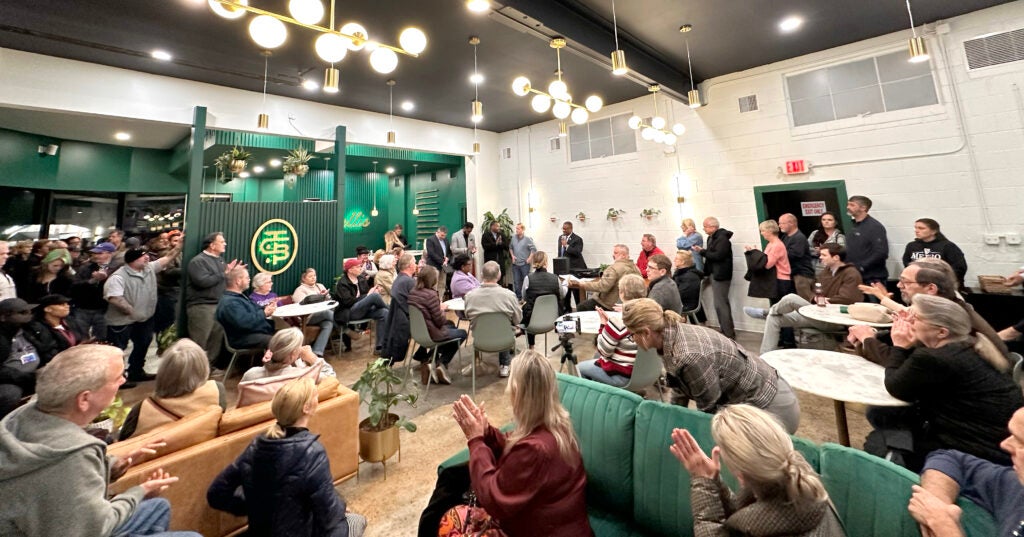
“Watching what they’re trying to do to my neighborhood and to Richmond is tearing me apart,” he said. “The apartment-style housing doesn’t fit with single-family homes.”
Berry added that incorporating the 1934 school into the development is “on the table” and that developers were “in no rush to tear anything down.”
Former commission candidate Michael Thurmond said the school board vote hurt the plan by voting to sell in secret.
“The board really screwed the pooch when they did this thing underhandedly in secret,” he said.
Commissioner Jordan Johnson, who spent part of his youth in public housing, said the proposed mixed-income development isn’t what many imagine about government-subsidized housing.
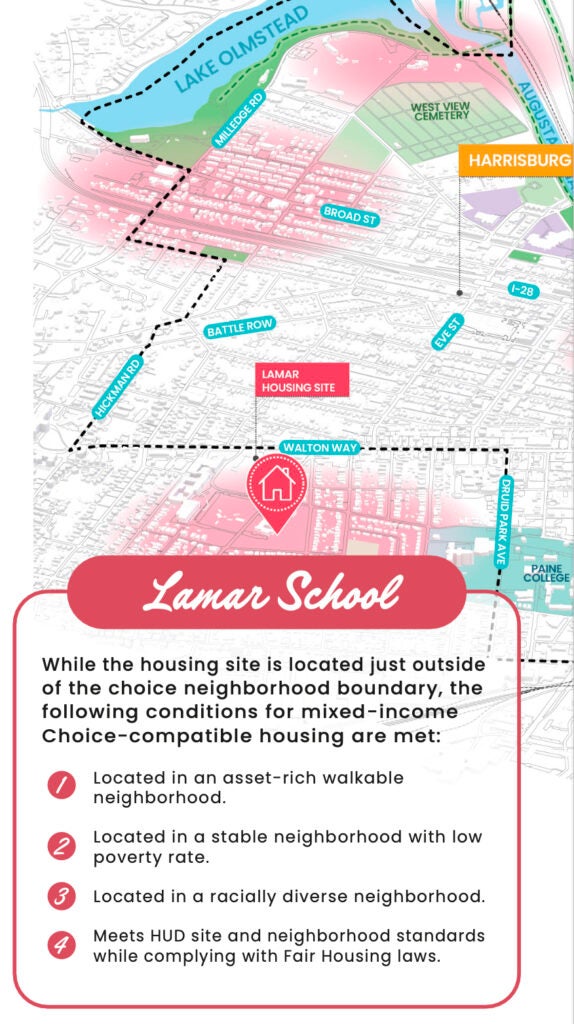
“We’re talking market-rate housing here. We’re talking a small set-aside for low income. We’re not talking about creating the projects in your neighborhood,” he said.
Thurmond said while mixed-income Augusta Housing Authority developments such as Walton Oaks off Sandbar Ferry Road and Walton Green on 15th Street might “bring the neighborhoods up,” the Lamar area doesn’t need the uplift.
Berry said it had been “incredibly challenging to get options on property” to include in the application. The Lamar agreement “proves we have the capacity to think about it.”
Another neighbor, a teacher, said having students who live in hotels demonstrates the dire shortage of affordable housing in Augusta.
“When we talk about low-income people, we should be picturing kids,” she said. “Give people a roof over their heads and they are happy and settled.”
Susan McCord is a staff writer with The Augusta Press. Reach her at susan@theaugustapress.com

